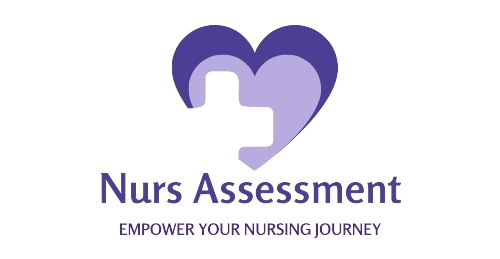A focused nursing assessment will consider all aspects of the patient’s physical, mental, and emotional wellbeing. This type of assessment is more specific and covers the newly manifested symptom or previously diagnosed medical condition. It is used in situations that do not require a broad insight and when there will be a follow-up of an initial general assessment.
The nursing assessments are faster, more targeted and permit nurses to immediately address and meet the need which has been diagnosed. The approach helps in timely identification of any emergent changes that may be exhibited by the patient hence enhancing the patients’ experience.
Examples of Nursing Focused Assessments
Nursing focused assessments illustrate how confined nursing examinations are employed to focus on particular disorders or conditions and reduce or eliminate intermediate care needs on patients.
Respiratory Focused Assessment
In the case a patient experiences any of the signs like shortness of breath, coughing or wheezing, a respiratory centered assessment is conducted.
- Checking lungs for abnormalities e.g wheezing or crackles.
- Monitor oxygen saturation levels.
- Monitor the depth and the rate of breathing.
- It is possible to look for signs of cyanosis, visualization of accessory muscles.
- Enquire about the time when the breathing problem or the breathing distress began, how long the problem persisted and how severe the problem was.
Cardiovascular Focused Assessment
If patients had chest pain, palpitations, or swelling of the extremities, the cardiovascular-focused assessment is relevant.
- Record the regularity of heartbeat, the arterial pressure and the strength of pulse.
- To listen to high pitched sounds, like murmurs that may indicate an abnormality of the members of the heart.
- Look for clues of peripheral artery disease, swelling in legs or discolouration due to inadequate blood supply.
- Observation: check the capillary refill in the fingers and toes.
- Ask where the patient feels pain in his or her chest and how severe the pain is.
Neurological Focused Assessment
For the patients suffering from dizziness, confusion or headaches, a neurological centered examination of the patient assists in determining the brain and nerve health. The nurse will:
- Check the client’s awareness of the environment and their present surroundings.
- Evaluate motor function like the strength of grip, and the ability of the client to move body parts.
- Assess the size of the pupils, and how the child responds to light.
- Enquire whether the patient can feel sensation in hands, cramps, tingle or have problem balancing.
- Look for speech impediment or slurring of words or face droopage.
Key Components of NursingFocused Assessment
A focused nursing assessment is a comprehensive evaluation of one or several issues, making it possible for the nurse to diagnose the key needs or problems of a patient as soon as possible. It contains several steps that facilitate the process of identifying a problem, and select the best care plan for a nurse.
Observing Specific Body Systems
In a focused assessment process, the first process is to focus only on the body system that is most associated with the patient’s concern.
Asking Targeted Questions
In order to focus and make the assessment more specific the nurse interrogates the patient questions that are specifically based on a problem that the patient is facing. This step is important for the reason of getting more subjective information that could help in understanding the patient’s view on the symptoms.
Performing Physical Exams
Once the nurse has obtained the client’s perceptions, the nurse examines the client physically to confirm or rule out their complaints.
Monitoring Vital Signs
Vital signs like respiratory rate and oxygen saturation give a unique insight of the general health state of a patient and the severity of the problem. In a focused assessment nursing the nurse then monitors some particular vital signs related to the patient’s concern.
The Benefits of Conducting a Focused Nursing Assessment
A nursing focused assessment has many benefits that enhance the quality of care for patients and the organizational practice of nursing. This focused plan enables the nurses to easily spot particular health issues and attend to them enhancing effectiveness in the management of the patients.
- Saves Time and Increases Efficiency: This ability to differentiate between the symptoms or complaints gives a faster approach in decision making and treatment in busy health related settings like emergency units or Intensive care units.
- Enhances Accuracy in Diagnosis: A focused nursing assessment makes the collection of accurate and relevant data possible for the nurses. This detailed information enhances the accuracy of the diagnosis, and helps the health care providers to design specific intervention.
- Improves Patient Outcomes: The directedness of focused assessment results in the identification of potential complications or changes in the patient’s condition more rapidly. Instead of waiting for things to get worse and cause the health of a patient to deteriorate, solutions that could prevent such outcomes are sought after and applied.
- Guides Personalized Care Plans: This way it becomes easy to address the problem with the needed intervention as well as organizing the care to fit the individual patient requirements. This makes the treatments more effective and makes the patients happy with the treatment that has been given to them.
- Facilitates Effective Communication: Large scale assessments provide well-defined information that can be effectively transmitted to other stakeholders of the healthcare team. Such clear communication creates cohesion in the care team and makes sure all members are clear about the patient’s state and the plan that needs to be followed.
- Enhances Nurse-Patient Relationship: Based on the patient’s complaint, a selective assessment in nursing adds value to the patient, and is an acknowledgement of the patient’s needs in the health care setting. This approach promotes trust, and enhances the nurse-patient relationship patients feel that they have been understood.
Conclusion
A focused nursing assessment is a more narrowly tuned, issue-oriented approach that enables nurses to home in on certain patient concerns. The focused nursing assessment is one of the profound tools of the current nursing practice especially in the fast paced practice settings where timely and accurate assessments are very vital. They enable the nurses to provide effective and individualized patient care based on the client’s requirements within the first hours so that any emerging complications are well handled.
If you need more skills on focused nursing assessment or you want to update yourself further education is often recommended. Continuing education may help improve one’s skills when it comes to delivering quality care that can be linked to improved patient outcomes.
You can learn more from these links.
Frequently Asked Questions (FAQs)
What is a focused assessment by an LPN?
A brief consultation by a Licensed Practical Nurse is a narrow-down investigation on a certain aspect of the patient’s condition. LPNs evaluate specific body systems or body areas that are associated with a given health concern of a patient.
For instance, if a patient has described feeling short of breath, the LPN has to attend to the respiratory system and may auscultate the lungs, check the patient’s oxygen levels, and assess respiratory rates. LPNs function under the direction of a Registered Nurse or a physician; practitioners’ concise evaluation directs subsequent diagnostic measures or therapies.
What is the difference between a primary assessment and a focused assessment?
The primary assessment is the first and brief evaluation of the global state of the patient, that is commonly used especially when the patient presents with severe symptoms indicative of critical care. They normally include inspecting the patient’s airway, breathing, circulation and vital signs with a view of ascertaining the patient’s status.
While, specific or focused nursing assessment is more methodical and is centered on particular issues. This one narrows down a sign or organ or body part, for example, evaluating only the cardiovascular system in a patient with chest pain. Where, the first type of assessment is used to provide a quick overall assessment of health, the second type or focused assessment caters for a complaint or concern.
When should a nurse perform a focused assessment?
Such a targeted approach is beneficial because it ensures that any ailment is well detected and treated. This means a nurse should assess a patient in detail whenever the patient comes to the clinic with concern or presenting signs or symptoms or whenever they have a reason to believe that the health status of the patient has changed.
- Follow-up care: Whenever patients undergo surgery or when they finish treatment, an assessment of the specific zone of the body in question is made to establish whether there are signs of enhancement or problem.
- Sudden symptoms: When a patient complains of a new or change in a complaint such as pain or breathing problem the nurse conducts assessment targeting the specific body system.
- Ongoing monitoring: Test procedures that are systematic include focused assessments that are done on patients who have chronic diseases for example, cardiac patients, asthmatics among others.


